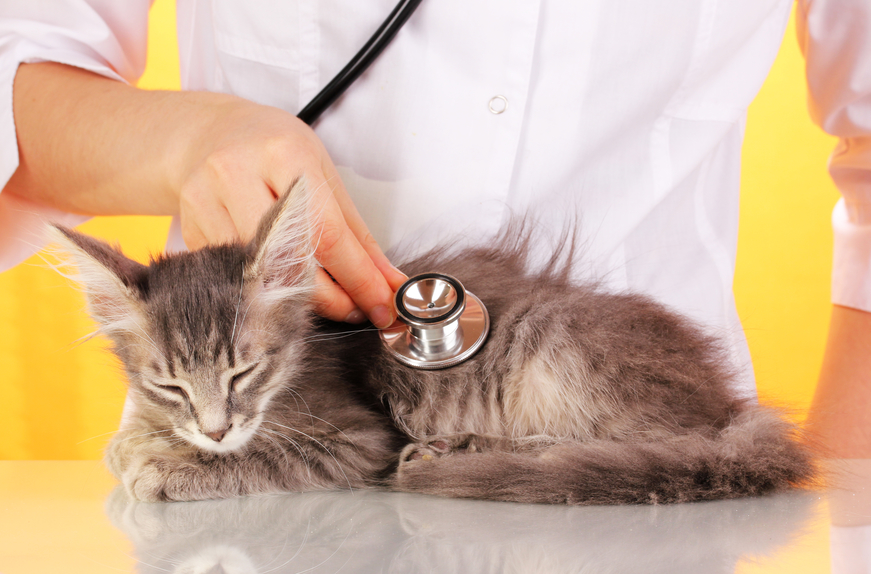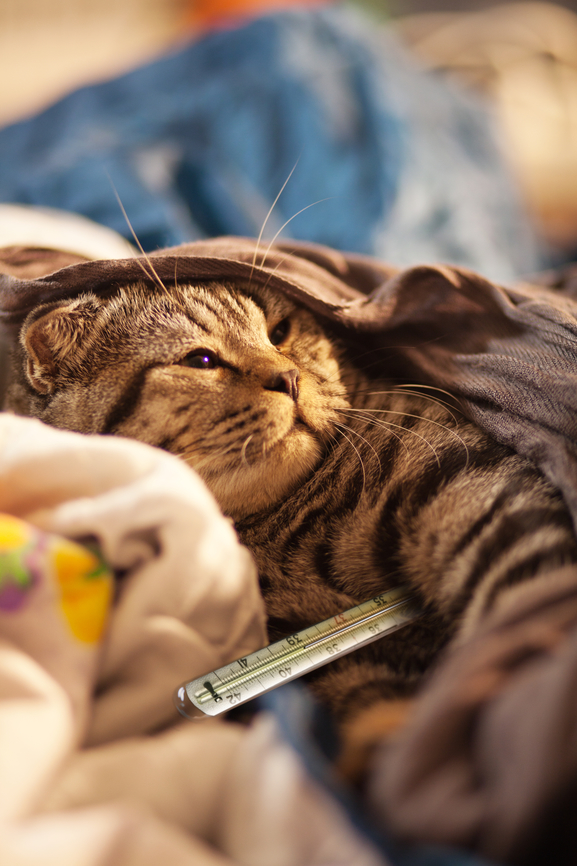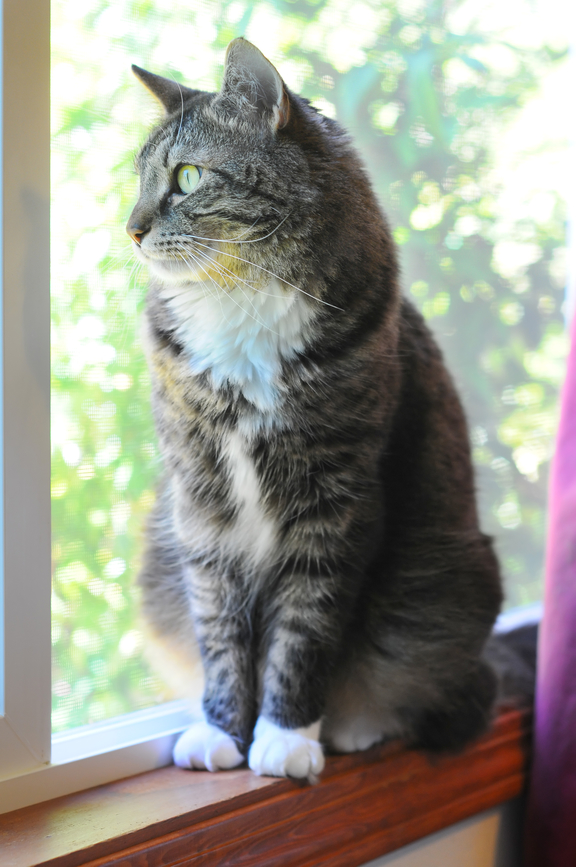
What is FIV?
Feline Immunodeficiency Virus is a lentivirus, or “slow virus” and is in the same retrovirus family as Feline Leukaemia Virus (FeLV) however the viruses differ in many ways. FIV interferes with immune systems of infected cats and can be potentially fatal. Like HIV in humans cats infected with FIV can become more susceptible to common infections and have more trouble fighting them.
How is it spread?
FIV is usually spread through deep bite wounds such as those during aggressive outdoor fights. Healthy cats are infected when they are bitten by cats carrying the FIV virus as the virus is in high levels in saliva. Occasionally mothers can pass FIV to their kittens across the placenta or milk. Cats living harmoniously together in a household seem to have low risk of spreading disease. It is uncommon to spread FIV through bowls and litter boxes, social grooming, sneezing and other causal contact.
What does FIV do to a cat?
Infected cats may appear normal for many years. However after an unpredictable length of time infection will eventually lead to a state where the cat’s immunity is unable to protect the cat from other infections. Bacteria, viruses, protozoa and fungi that can be found in the environment and usually do not cause disease can cause severe illness in these immune-compromised cats.
Cats infected FIV can have periods of illness interspersed with periods of normal health. Some of the symptoms they show include…
- Weight loss and reduced appetite
- Enlarged lymph nodes (glands)
- Poor coat
- Eye lesions
- Diarrhoea
- Inflammation of the gums and mouth
- Non-healing wounds
Can FIV be spread to people?
No, there are no reported cases of FIV spread from cats people (only from cat to cat).
Diagnosis
FIV is diagnosed by blood testing. The most common type of test looks for the presence of antibodies to the virus in the blood. No test is 100 % accurate and the result needs to be interpreted in conjunction with your pet’s history and circumstances.
Treatment
Unfortunately there is no specific antiviral treatment for FIV. Cats can carry the virus for a long time before symptoms occur. Treatment is based on supporting cats through secondary infections.
Caring for a FIV positive cat
- Keep your cat indoors – this is to minimize spread to other cats in the community as well as protect your cat from potential pathogens
- Watch for changes in your cats health and behavior
- Take your cat to the vet regularly for health checks
- Ensure your cat is desexed
Prevention
- Keeping your pet inside, especially at night, and away from high risk cats
- If you are introducing new cats to your house then it is best to test the new cat for FIV first
- Vaccination – this is not appropriate for all cats but can be discussed with your vet. The vaccine course is an intial course of 3 vaccines 2-4 weeks apart then a yearly booster. This vaccine may interfere with diagnostic blood test. Cats that are vaccinated should also be microchipped. If a non-microchipped cat is found it will show positive for FIV on a diagnostic test and it is possible that the cat will be euthanased rather than rehomed.


